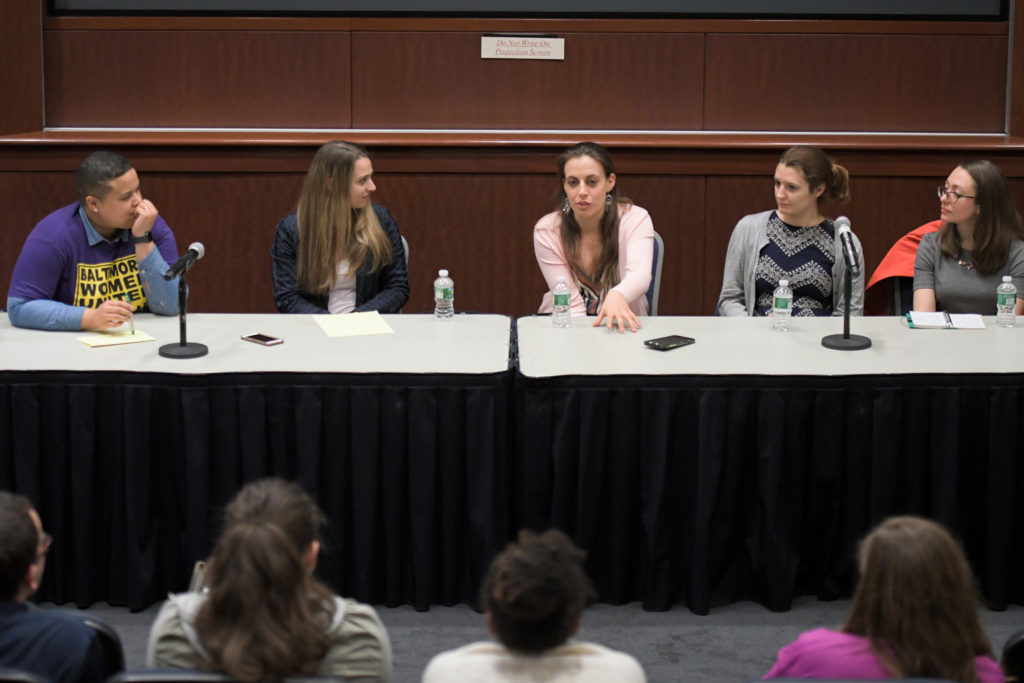Updated: Feb. 8, 2019 at 9:21 p.m.
Five local activists spoke at a panel at the Marvin Center Wednesday to encourage women to engage in hot-button issues and possibly pursue activism as a career.
The event, organized by March on the Campus GWU and sponsored by March for Our Lives GW and the GW Feminist Student Union, was titled “From Marching to Action: A Panel with Local Activists.” The panelists – women who hailed from local chapters of national activist organizations – spoke about the challenges women face professionally as activists.
Denise Gilmore, a co-chair of Baltimore Women’s United who also works as a union organizer, stressed the importance of traditional mobilization methods, like knocking on doors, to increase voter turnout and build up an activist organization.
“We spent the summer door-knocking houses for inconsistent women voters, focusing on those who voted in two out of the three last elections,” she said. “Our main goal was to really draw out and get a good sense of the issues that women cared about.”
Eve Levenson, a freshman and the founder of the D.C. chapter of March for Our Lives, an organization that supports increased gun control, discussed professionalism and encouraged young female activists to promote their positive attributes.
Levenson said showcasing her professionalism and talent has helped her leave an impression on employers or legislators who may be inclined to underestimate young people.
Levenson added that when she arrived at GW, she overextended herself between activism and her other responsibilities. She said student activists do not need to get involved with every organization and effort that they come across.
“It’s OK to say no to opportunities,” Levenson said. “If you are good at your work and you care about it, then some people will come to you with other projects in the future.”
The panelists shared tips and life skills that they wished they had known as students. Elizabeth Herndon, the communications director of the D.C. chapter of the Nation Organization for Women, discussed wage negotiation, adding that the societal pressure for women to be polite hinders their ability to negotiate with employers.
“A lot of times, we’re so pressured to be polite or just be grateful that someone offered you a job,” Herndon said.
The panelists also discussed the importance of networking, both between organizations and as women in the workforce.
The event concluded with a discussion about ways that students can be activists in their communities while juggling academic responsibilities. Panelists discussed traditional methods of participation, like calling Congressmen and joining on-campus service organizations, but they also discussed some creative methods, like commenting on proposed federal rules during the rulemaking process.
“Submit your comments,” Amanda Guiliano, the vice president of the NOW D.C. chapter, said. “The federal government is required to read all of them and categorize all of them, so even if it’s an unfriendly administration and you don’t think it’s going to sway them, it will slow them down.”
This post was updated to reflect the following correction:
A previous version of this post misspelled Eve Levenson’s name. Her name is now spelled correctly. We regret this error.





